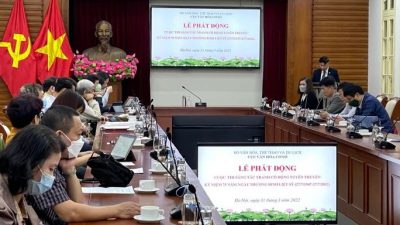
|
NDO – The COVID-19 pandemic is severely challenging the employment prospects of 660 million young people in the Asia Pacific region, as unemployment among Vietnamese youngsters this year may double. |
|
The figures were announced in a joint report entitled “Tackling the COVID-19 Youth Employment Crisis in Asia and the Pacific”, as issued by the International Labour Organisation (ILO) and Asian Development Bank (ADB) on August 18. According to the report, before the pandemic, local young people were already facing challenges in the labour market. In 2019, the regional youth unemployment rate was 13.8% compared to 3% for adults, and more than 160 million youths (24% of the population) were not in employment, education or training. These figures have been worsened by the COVID-19 crisis, and its multiple effects threaten to create a “lockdown generation” that will feel the weight of this crisis for a long time, the report stated. Youth unemployment rates in the region increased sharply in the first quarter of 2020 from the last quarter of 2019. Compared to the first quarter of 2019, the youth unemployment rate increased in six of the nine economies with available data, including Australia, Indonesia, Japan, Malaysia, and Vietnam, as well as in Hong Kong (China), which showed the largest increase of 3 percentage points. Between 10 and 15 million youth jobs (full-time equivalent) may be lost across 13 countries in the Asia Pacific region in 2020, according to the report’s projections. In Vietnam, it is estimated that more than 10% of young people will lose their jobs in 2020. Unemployment among young Vietnamese people is reported to be between 10.8% and 13.2%, which is almost double the figure of 6.9% in 2019. Young people in Vietnam will see the disappearance of 370,000 jobs if the epidemic is soon brought under control. In a worst case scenario, this could reach 548,000 jobs, according to the report. To address the youth employment crisis, the report urged governments in the region to adopt large-scale and targeted responses, centred on comprehensive labour market policies, including wage subsidies and public employment programs, and minimising the impact on young students in terms of disruptions to their education and training. Effective COVID-19 mitigation will ensure the poorest and most vulnerable youth are reached and that young people are meaningfully engaged in policy and social dialogue, it said. Prioritising youth employment and maximising youth productivity in the COVID-19 recovery process would improve the Asia Pacific region’s future prospects for inclusive and sustainable growth, demographic transition and social stability, it added. Source: Nhan Dan Online |

